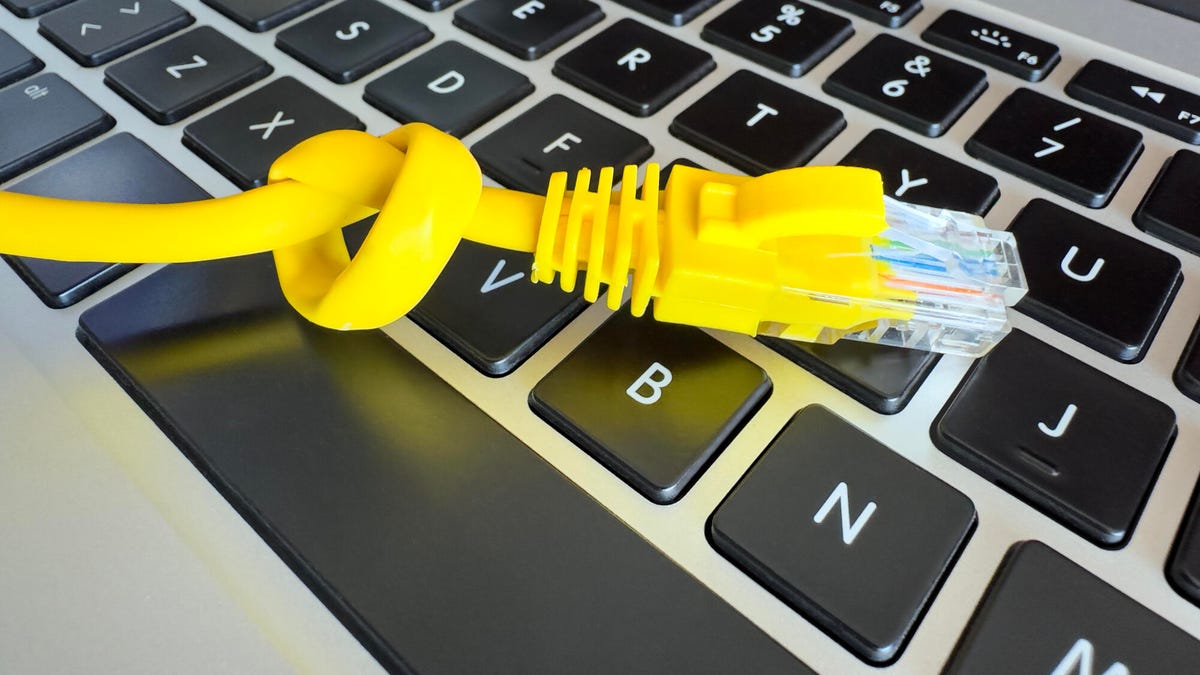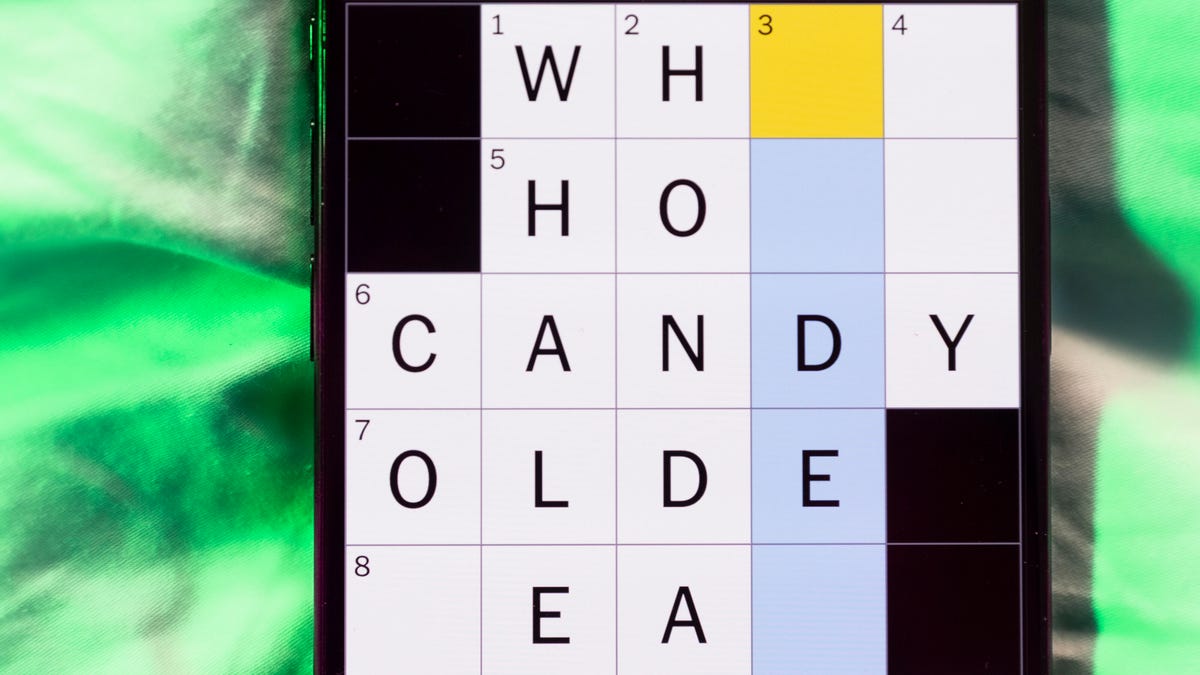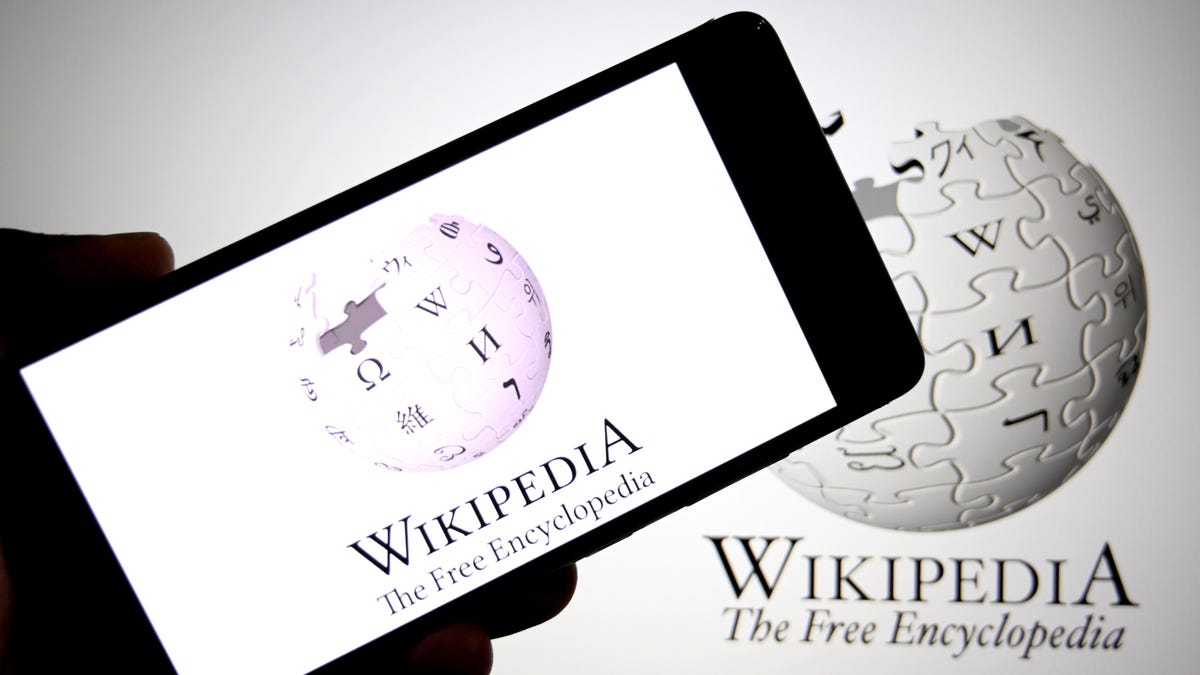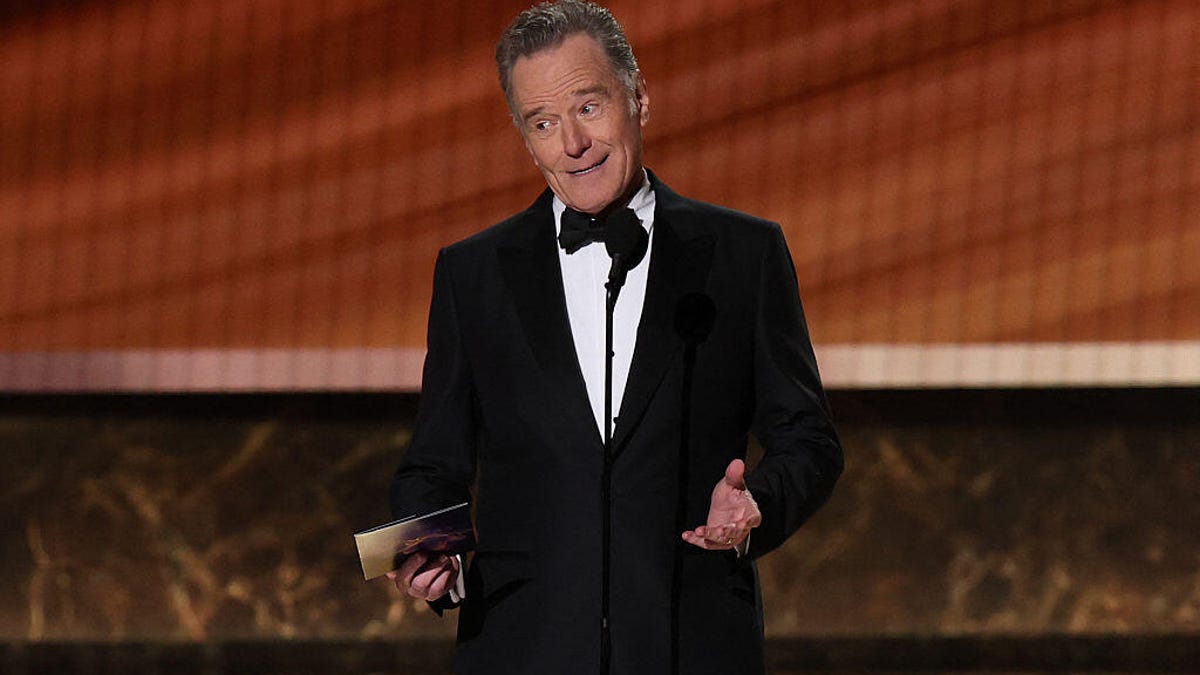Technologies
An AWS Outage Broke the Internet While You Were Sleeping, and the Trouble Continues
Reddit, Roblox and Ring are just a tiny fraction of the 1,000-plus sites and services that were affected when Amazon Web Services went down, causing a major internet blackout.

The internet kicked off the week the way that many of us often feel like doing: by refusing to go to work. An outage at Amazon Web Services rendered huge portions of the internet unavailable on Monday morning. Sites and services including Snapchat, Fortnite, Venmo, the PlayStation Network and, predictably, Amazon, were unavailable off and on through the start of the day.
The outage began shortly after midnight PT, and took Amazon around 3.5 hours to fully resolve. Social networks and streaming services were among the 1,000-plus companies affected, and critical services such as online banking were also taken down.
The issues seemed to have been largely resolved as the US East Coast was coming online, but spiked again dramatically after 8 a.m. PT as work began on the West Coast.
AWS, a cloud services provider owned by Amazon, props up huge portions of the internet. So when it went down, it took many of the services we know and love with it. As with the Fastly and Crowdstrike outages over the past few years, the AWS outage shows just how much of the internet relies on the same infrastructure — and how quickly our access to the sites and services we rely on can be revoked when something goes wrong.
The reliance on a small number of big companies to underpin the web is akin to putting all of our eggs in a tiny handful of baskets. When it works, it’s great, but only one small thing needs to go wrong for the internet to come to its knees in a matter of minutes.
How widespread was the AWS outage?
Just after midnight PT on Oct. 20, AWS first registered an issue on its service status page, saying it was «investigating increased error rates and latencies for multiple AWS services in the US-East-1 Region.» Around 2 a.m. PT, it said it had identified a potential root cause of the issue. Within half an hour, it had started applying mitigations that were resulting in significant signs of recovery.
«The underlying DNS issue has been fully mitigated, and most AWS Service operations are succeeding normally now,» AWS said at 3.35 a.m. PT. The company didn’t respond to request for further comment beyond pointing us back to the AWS health dashboard.
But as of 8:43 a.m. PT, many services were still impacted, and the AWS status page showed the severity as «degraded.» In a post at that time, AWS noted: «We are throttling requests for new EC2 instance launches to aid recovery and actively working on mitigations.»
Around the time that AWS says it first began noticing error rates, Downdetector saw reports begin to spike across many online services, including banks, airlines and phone carriers. As AWS resolved the issue, some of these reports saw a drop off, whereas others have yet to return to normal. (Disclosure: Downdetector is owned by the same parent company as CNET, Ziff Davis.)
Around 4 a.m. PT, Reddit was still down, while services including Ring, Verizon and YouTube were still seeing a significant number of reported issues. Reddit finally came back online around 4.30 a.m. PT, according to its status page, which was then verified by us.
In total, Downdetector saw over 6.5 million reports, with 1.4 million coming from the US, 800,000 from the UK and the rest largely spread across Australia, Japan, the Netherlands, Germany and France. Over 1,000 companies in total have been affected, Downdetector added.
«This kind of outage, where a foundational internet service brings down a large swath of online services, only happens a handful of times in a year,» Daniel Ramirez, Downdetector by Ookla’s director of product told CNET. «They probably are becoming slightly more frequent as companies are encouraged to completely rely on cloud services and their data architectures are designed to make the most out of a particular cloud platform.»
What caused the AWS outage?
AWS didn’t immediately share full details about what caused the internet to fall off a cliff this morning. Then at 8:43 a.m. PT, it offered this brief description: «The root cause is an underlying internal subsystem responsible for monitoring the health of our network load balancers.»
Earlier in the day it had attributed the outage to a «DNS issue.» DNS stands for the Domain Name System and refers to the service that translates human-readable internet addresses (for example, CNET.com) into machine-readable IP addresses that connect browsers with websites.
When a DNS error occurs, the translation process cannot take place, interrupting the connection. DNS errors are common internet roadblocks, but usually happen on small scale, affecting individual sites or services. But because the use of AWS is so widespread, a DNS error can have equally widespread results.
According to Amazon, the issue is geographically rooted in its US-East-1 region, which refers to an area of North Virginia where many of its data centers are based. It’s a significant location for Amazon, as well as many other internet companies, and it props up services spanning the US and Europe.
«The lesson here is resilience,» said Luke Kehoe, industry analyst at Ookla. «Many organizations still concentrate critical workloads in a single cloud region. Distributing critical apps and data across multiple regions and availability zones can materially reduce the blast radius of future incidents.»
Was the AWS outage caused by a cyberattack?
DNS issues can be caused by malicious actors, but there’s no evidence at this stage to say that this is the case for the AWS outage.
Technical faults can, however, pave the way for hackers to look for and exploit vulnerabilities when companies’ backs are turned and defenses are down, according to Marijus Briedis, CTO at NordVPN. «This is a cybersecurity issue as much as a technical one,» he said in a statement. «True online security isn’t only about keeping hackers out, it’s also about ensuring you can stay connected and protected when systems fail.»
In the hours ahead, people should look out for scammers hoping to take advantage of people’s awareness of the outage, added Briedis. You should be extra wary of phishing attacks and emails telling you to change your password to protect your account.
Technologies
Today’s NYT Mini Crossword Answers for Tuesday, Oct. 21
Here are the answers for The New York Times Mini Crossword for Oct. 21.

Looking for the most recent Mini Crossword answer? Click here for today’s Mini Crossword hints, as well as our daily answers and hints for The New York Times Wordle, Strands, Connections and Connections: Sports Edition puzzles.
Today’s Mini Crossword features a lot of one certain letter. Need help? Read on. And if you could use some hints and guidance for daily solving, check out our Mini Crossword tips.
If you’re looking for today’s Wordle, Connections, Connections: Sports Edition and Strands answers, you can visit CNET’s NYT puzzle hints page.
Read more: Tips and Tricks for Solving The New York Times Mini Crossword
Let’s get to those Mini Crossword clues and answers.
Mini across clues and answers
1A clue: Bone that can be «dropped»
Answer: JAW
4A clue: Late scientist Goodall
Answer: JANE
5A clue: Make critical assumptions about
Answer: JUDGE
6A clue: Best by a little
Answer: ONEUP
7A clue: Mercury, Jupiter, Saturn, etc.
Answer: GODS
Mini down clues and answers
1D clue: Just kind of over it
Answer: JADED
2D clue: Beef cattle breed
Answer: ANGUS
3D clue: Shed tears
Answer: WEEP
4D clue: 2007 comedy-drama starring Elliot Page and Michael Cera
Answer: JUNO
5D clue: Refresh, as one’s memory
Answer: JOG
Technologies
Wikipedia Says It’s Losing Traffic Due to AI Summaries, Social Media Videos
The popular online encyclopedia saw an 8% drop in pageviews over the last few months.

Wikipedia has seen a decline in users this year due to artificial intelligence summaries in search engine results and the growing popularity of social media, according to a blog post Friday from Marshall Miller of the Wikimedia Foundation, the organization that oversees the free online encyclopedia.
Don’t miss any of our unbiased tech content and lab-based reviews. Add CNET as a preferred Google source.
In the post, Miller describes an 8% drop in human pageviews over the last few months compared with the numbers Wikipedia saw in the same months in 2024.
«We believe that these declines reflect the impact of generative AI and social media on how people seek information, especially with search engines providing answers directly to searchers, often based on Wikipedia content,» Miller wrote.
Blame the bots
AI-generated summaries that pop up on search engines like Bing and Google often use bots called web crawlers to gather much of the information that users read at the top of the search results.
Websites do their best to restrict how these bots handle their data, but web crawlers have become pretty skilled at going undetected.
«Many bots that scrape websites like ours are continually getting more sophisticated and trying to appear human,» Miller wrote.
After reclassifying Wikipedia traffic data from earlier this year, Miller says the site «found that much of the unusually high traffic for the period of May and June was coming from bots built to evade detection.»
The Wikipedia blog post also noted that younger generations are turning to social-video platforms for their information rather than the open web and such sites as Wikipedia.
When people search with AI, they’re less likely to click through
There is now promising research on the impact of generative AI on the internet, especially concerning online publishers with business models that rely on users visiting their webpages.
(Disclosure: Ziff Davis, CNET’s parent company, in April filed a lawsuit against OpenAI, alleging it infringed Ziff Davis copyrights in training and operating its AI systems.)
In July, Pew Research examined browsing data from 900 US adults and found that the AI-generated summaries at the top of Google’s search results affected web traffic. When the summary appeared in a search, users were less likely to click on links compared to when the search results didn’t include the summaries.
Google search is especially important, because Google.com is the world’s most visited website — it’s how most of us find what we’re looking for on the internet.
«LLMs, AI chatbots, search engines and social platforms that use Wikipedia content must encourage more visitors to Wikipedia, so that the free knowledge that so many people and platforms depend on can continue to flow sustainably,» Miller wrote. «With fewer visits to Wikipedia, fewer volunteers may grow and enrich the content, and fewer individual donors may support this work.»
Last year, CNET published an extensive report on how changes in Google’s search algorithm decimated web traffic for online publishers.
Technologies
OpenAI Says It’s Working With Actors to Crack Down on Celebrity Deepfakes in Sora
Bryan Cranston alerted SAG-AFTRA, the actors union, when he saw AI-generated videos of himself made with the AI video app.

OpenAI said Monday it would do more to stop users of its AI video generation app Sora from creating clips with the likenesses of actors and other celebrities after actor Bryan Cranston and the union representing film and TV actors raised concerns that deepfake videos were being made without the performers’ consent.
Actor Bryan Cranston, the Screen Actors Guild-American Federation of Television and Radio Artists (SAG-AFTRA) and several talent agencies said they struck a deal with the ChatGPT maker over the use of celebrities’ likenesses in Sora. The joint statement highlights the intense conflict between AI companies and rights holders like celebrities’ estates, movie studios and talent agencies — and how generative AI tech continues to erode reality for all of us.
Sora, a new sister app to ChatGPT, lets users create and share AI-generated videos. It launched to much fanfare three weeks ago, with AI enthusiasts searching for invite codes. But Sora is unique among AI video generators and social media apps; it lets you use other people’s recorded likenesses to place them in nearly any AI video. It has been, at best, weird and funny, and at worst, a never-ending scroll of deepfakes that are nearly indistinguishable from reality.
Cranston noticed his likeness was being used by Sora users when the app launched, and the Breaking Bad actor alerted his union. The new agreement with the actors’ union and talent agencies reiterates that celebrities will have to opt in to having their likenesses available to be placed into AI-generated video. OpenAI said in the statement that it has «strengthened the guardrails around replication of voice and likeness» and «expressed regret for these unintentional generations.»
OpenAI does have guardrails in place to prevent the creation of videos of well-known people: It rejected my prompt asking for a video of Taylor Swift on stage, for example. But these guardrails aren’t perfect, as we’ve saw last week with a growing trend of people creating videos featuring Rev. Martin Luther King Jr. They ranged from weird deepfakes of the civil rights leader rapping and wrestling in the WWE to overtly racist content.
Don’t miss any of our unbiased tech content and lab-based reviews. Add CNET as a preferred Google source.
The flood of «disrespectful depictions,» as OpenAI called them in a statement on Friday, is part of why the company paused the ability to create videos featuring King.
Statement from OpenAI and King Estate, Inc.
The Estate of Martin Luther King, Jr., Inc. (King, Inc.) and OpenAI have worked together to address how Dr. Martin Luther King Jr.’s likeness is represented in Sora generations. Some users generated disrespectful depictions of Dr.…— OpenAI Newsroom (@OpenAINewsroom) October 17, 2025
Bernice A. King, his daughter, last week publicly asked people to stop sending her AI-generated videos of her father. She was echoing comedian Robin Williams’ daughter, Zelda, who called these sorts of AI videos «gross.»
I concur concerning my father.
Please stop. #RobinWilliams #MLK #AI https://t.co/SImVIP30iN— Be A King (@BerniceKing) October 7, 2025
OpenAI said it «believes public figures and their families should ultimately have control over how their likeness is used» and that «authorized representatives» of public figures and their estates can request that their likeness not be included in Sora. In this case, King’s estate is the entity responsible for choosing how his likeness is used.
This isn’t the first time OpenAI has leaned on others to make those calls. Before Sora’s launch, the company reportedly told a number of Hollywood-adjacent talent agencies that they would have to opt out of having their intellectual property included in Sora. But that initial approach didn’t square with decades of copyright law — usually, companies need to license protected content before using it — and OpenAI reversed its stance a few days later. It’s one example of how AI companies and creators are clashing over copyright, including through high-profile lawsuits.
(Disclosure: Ziff Davis, CNET’s parent company, in April filed a lawsuit against OpenAI, alleging it infringed Ziff Davis copyrights in training and operating its AI systems.)
-

 Technologies3 года ago
Technologies3 года agoTech Companies Need to Be Held Accountable for Security, Experts Say
-

 Technologies3 года ago
Technologies3 года agoBest Handheld Game Console in 2023
-

 Technologies3 года ago
Technologies3 года agoTighten Up Your VR Game With the Best Head Straps for Quest 2
-

 Technologies4 года ago
Technologies4 года agoVerum, Wickr and Threema: next generation secured messengers
-

 Technologies4 года ago
Technologies4 года agoBlack Friday 2021: The best deals on TVs, headphones, kitchenware, and more
-

 Technologies4 года ago
Technologies4 года agoGoogle to require vaccinations as Silicon Valley rethinks return-to-office policies
-

 Technologies4 года ago
Technologies4 года agoOlivia Harlan Dekker for Verum Messenger
-

 Technologies4 года ago
Technologies4 года agoiPhone 13 event: How to watch Apple’s big announcement tomorrow
